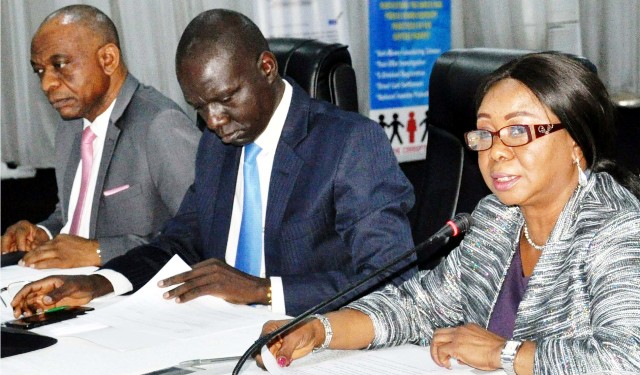Business
Forensic Auditors Berate ICAN Boss Over Comments

Top members of Chartered Institute of Forensic and Investigative Auditors in Nigeria (CIFIAN) have criticised the view of the president of Institute of Chartered Accountants of Nigeria (ICAN) on the formation of other accounting bodies.
They described the view by the ICAN President, Alhaji Ismaila Zakari, at the National Assembly on a bill for law to establish CIFAN as ‘unfortunate and a display of ignorance’.
The CIFIAN President, Dr Victoria Enape, said in an interview with newsmen in Abuja yesterday, that the ICAN boss had shown that he was not in tune with global trends in financial auditing.
Zakari, had warned against the proliferation of accountancy bodies in Nigeria, saying promoters of those bodies were only interested in their personal pockets and not the profession.
He described the promoters of the accountancy bodies as comedians.
“Only last month, ICAN was invited by the National Assembly to make presentation on a bill seeking to provide for the establishment of Chartered Institute of Forensic Accountants of Nigeria and another one seeking to provide for the establishment of Chartered Institute of Forensic and Investigative Auditors in Nigeria.
“I led a delegation to the Senate where I made a presentation in which I condemned the bill in strong terms. All hands must be on deck, if we are to kill this mediocrity. We are hopeful that the Senate would not listen,” Zakari said.
However, Enape said she read what the ICAN president said with dismay, adding that she was sure that justice would prevail.
She said that the CIFIAN Bill did not in any way amount to duplicating of duties or looking for money as alleged.
“I am not a comedian neither am I a mediocre. A mediocre cannot write a book on forensic auditing like I have done. Nobody in ICAN has written a book on anything forensic.
“Today in Nigeria, the first person to write a book on Forensic and Investigative Auditing and Fraud Prevention is the President of CIFIAN.
“How could you call somebody like that a mediocre or whatever demeaning name?”
Business
Fidelity Bank To Empower Women With Sustainable Entrepreneurship Skills, HAP2.0
Business
President Tinubu Approves Extension Ban On Raw Shea Nut Export
Business
Crisis Response: EU-project Delivers New Vet. Clinic To Katsina Govt.
-
Maritime5 days ago
Nigeria To Pilot Regional Fishing Vessels Register In Gulf Of Guinea —Oyetola
-

 Sports5 days ago
Sports5 days agoGombe-Gara Rejects Chelle $130,000 monthly salary
-
Maritime5 days ago
Customs Declares War Against Narcotics Baron At Idiroko Border
-

 Sports5 days ago
Sports5 days agoTEAM RIVERS SET TO WIN 4×400 ” MORROW” …Wins Triple jump Silver
-
Maritime5 days ago
NIMASA,NAF Boost Unmanned Aerial Surveillance For Maritime Security
-

 Sports5 days ago
Sports5 days agoNPFL Drops To 91st In Global League Rankings
-

 Sports5 days ago
Sports5 days agoNIGER DELTA GAMES PANACEA TO YOUTH DEV”
-

 Sports5 days ago
Sports5 days agoNPFL Impose Fines On Kwara United Over Fans Misconduct

